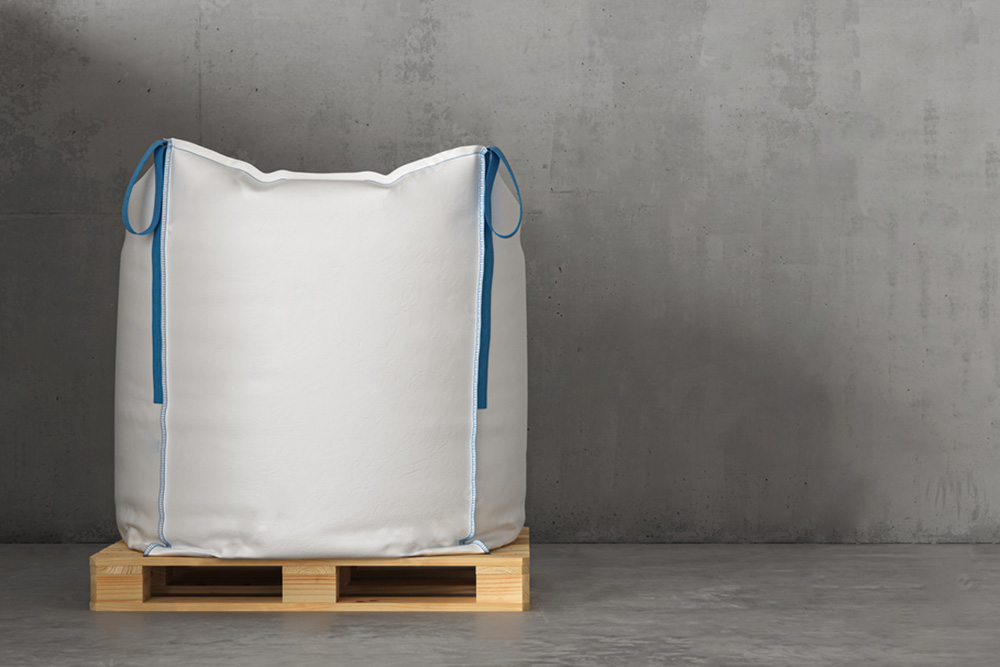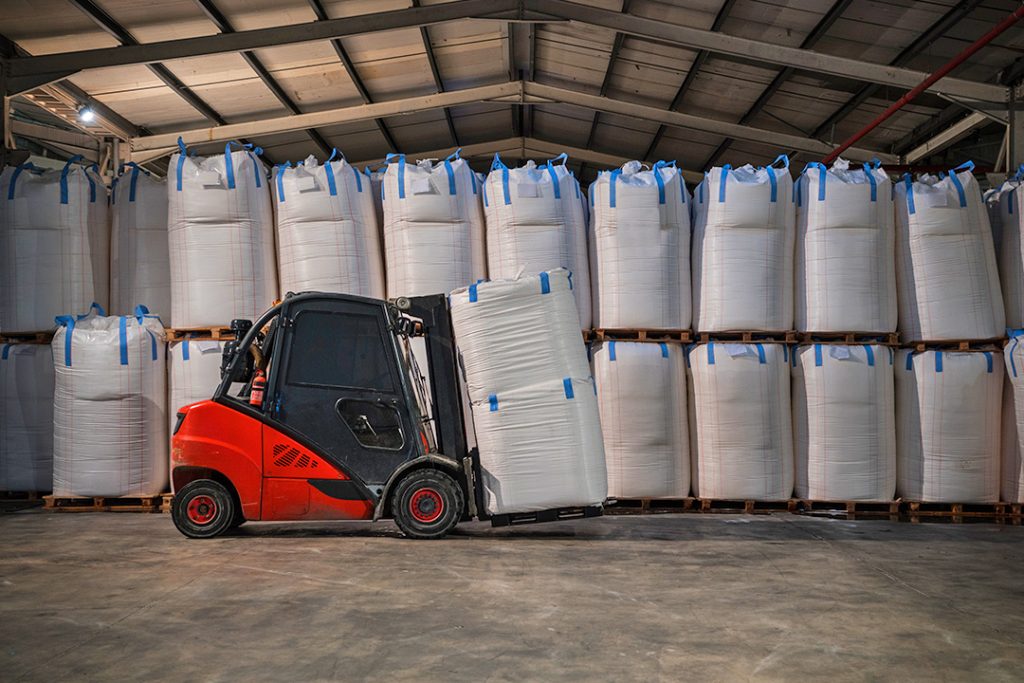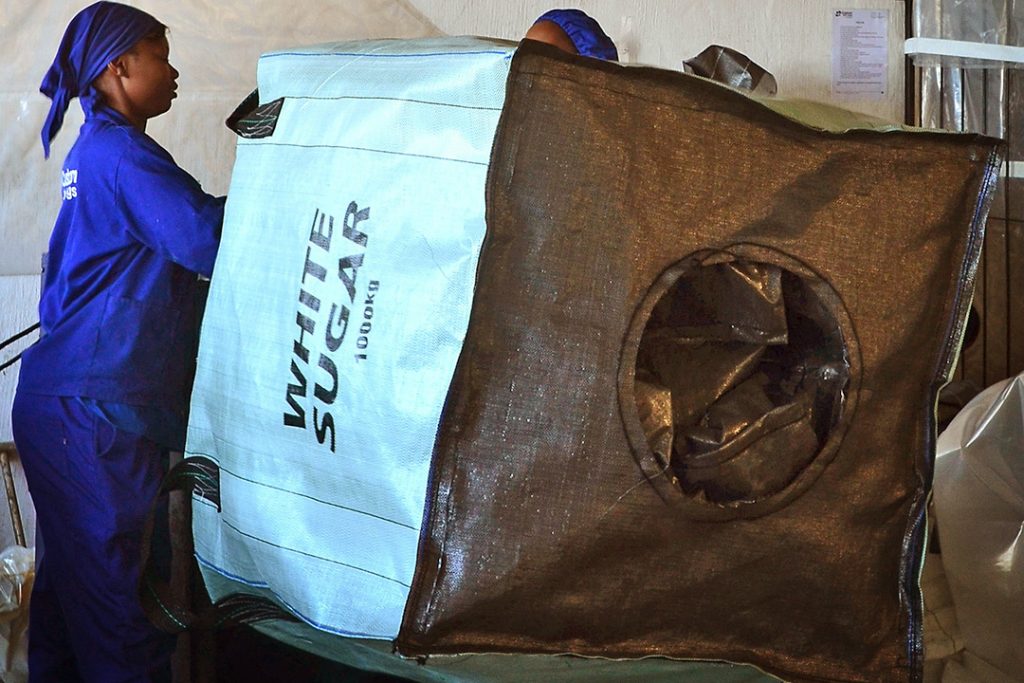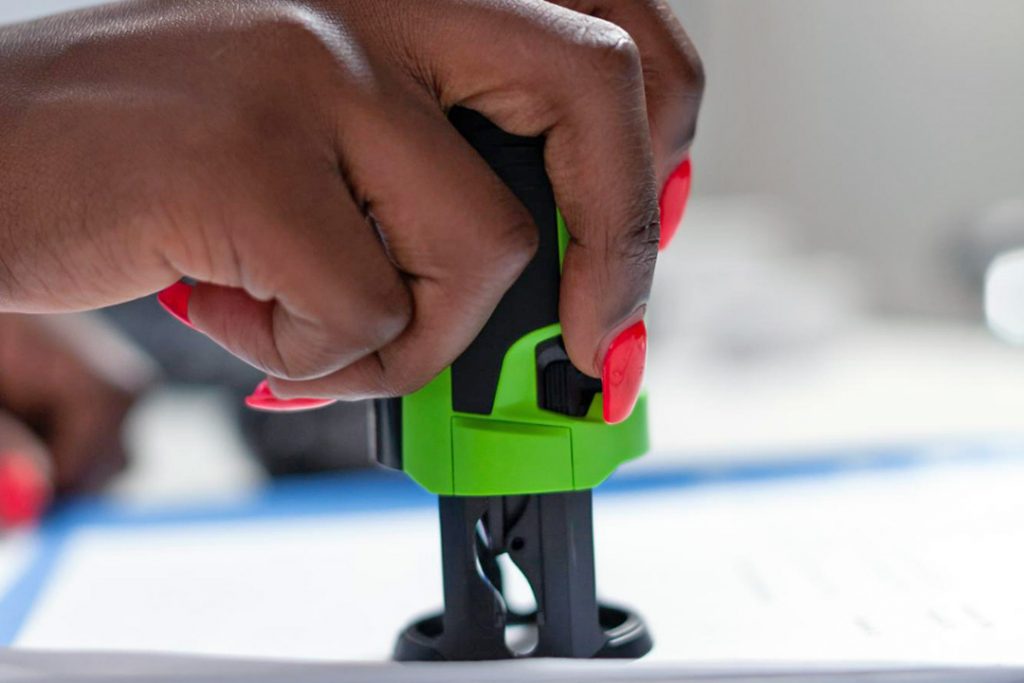Safety is crucial when it comes to storing and transporting dangerous chemicals and hazardous materials. A UN certificate proves that bulk bags are designed, manufactured and sold with safety in mind and that these packaging products can meet the highest expectations.
According to the United Nations Recommendations on the Transport of Dangerous Goods (UN Model Regulations), these bulk containers must be put through a rigorous testing process and satisfy strict international criteria to be UN-certified. South African companies that need to transport hazardous chemicals safely and legally must be aware of the validity period for a UN certificate.
These certifications do have an expiry date. Custom Bulk Bags is a leading manufacturer and supplier of flexible intermediate bulk containers (FIBCs) in South Africa. We produce up to 3.5 million bulk bags per year and our products can safely hold between 500kg and two tonnes of material per bag. We offer several UN-certified designs and attachments, making our products fully customisable to meet your unique needs.

What does a UN certificate mean?
When a bulk bag is certified by the UN, it means that it has passed several stringent tests to guarantee that it is suitable for carrying hazardous goods. These tests assess many factors, such as:
- Material quality – The polypropylene fabric must be of the highest calibre and satisfy strict requirements for strength and rip resistance.
- Manufacturing process – Constant quality and adherence to stringent quality control procedures are important for UN certification. Every stage of the manufacturing process is closely examined.
- Strength of the seams – A bulk bag’s strength is largely dependent on its seams. Certain testing procedures make sure the seams are capable of withstanding stress without breaking.
- Drop tests – These tests are used to determine whether bulk bags can retain their integrity while being transported and moved around.
- Stacking tests – These tests assess the bulk bags’ ability to withstand stacking without losing structural integrity.

The validity period of a UN certificate
A bulk bag is granted a UN certificate after passing all necessary tests and fulfilling the UN Model Regulations. This certification is temporary, though. Depending on the quality of the bulk bags, a UN certificate is granted for between one and three years. Buyers must check that the certifications are valid before purchasing these bulk bags.
Since the UN certification is temporary, manufacturers must go through a re-certification procedure to continue offering UN-approved bulk bags. This procedure entails independent factory audits to verify compliance with UN quality control protocols.
In addition, fresh samples of bulk bags are chosen at random and put through the entire set of tests specified in the UN Model Regulations. This ensures batches are made in accordance with their guidelines. Lastly, to guarantee full compliance, all pertinent documentation is carefully examined, including test findings and manufacturing protocols.

Important things to note when buying UN-certified bulk bags
When buying UN-certified bulk bags, start by checking the validity period of the certificate to verify that the bulk bag you’re buying has enough time left on it to satisfy your demands. Choose bulk bags that are approved for the particular danger class of the goods you are shipping. Bulk bag testing criteria can vary depending on the danger class.
Choose a trustworthy bulk bag manufacturer who has a history of producing high-quality UN-certified goods. Your chosen manufacturer should be able to offer fully customisable designs and additional components to meet your needs and ensure you get tailored bulk bags that work effectively.
Although a UN certificate guarantees the bulk bag’s structural integrity, correct usage and storage procedures are important for preserving performance and safety. Regarding weight restrictions, handling techniques, and ideal storage conditions, abide by the manufacturer’s directions.

Making the most out of your UN-certified bulk bags
You can make sure that your UN-certified bulk bags work at their best for the duration of their lifespan by adhering to these guidelines:
- Keep them inside – Protect your bulk bags from moisture, intense heat, and direct sunlight to extend their shelf life.
- Handle with care – Never overload, puncture, or handle the bags roughly. They are incredibly durable but you can extract more value from them by being careful and gentle.
- Examine them often – Check for signs of wear and tear, such as rips or weak seams. To ensure compliance and safety standards are met, damaged UN-certified bulk bags must be replaced immediately.
Purchasing UN-certified bulk bags is necessary to guarantee the secure and legal transportation of dangerous goods. Custom Bulk Bags offers a range of UN-certified bulk bags that can be customised to meet your unique needs. We also offer consulting and guidance to help you choose the right UN-certified bulk bags.
Taking into account variables such as the kind of goods you are transporting, weight capacity specifications, and the particular hazard class standards that apply, our team of professionals can help you make the right choice. For more information about our bulk bags or to get advice on the ideal designs, please contact us today.
___
Custom Bulk Bags is a leading South African manufacturer of woven polypropylene bags for various industries, such as mining, chemicals and food. We are able to produce over 3.5-million bulk bags per year, keeping our customers in stock at all times. Our bags adhere to the highest levels of quality as a result of our stringent in-house testing and quality control programmes.
Custom Bulk Bags holds ISO 9001 certification and we currently have a number of UN-certified designs. We are a Level 2 B-BBEE manufacturer and supplier and fall under the ownership structure of Deneb Investments Limited. For more information on our products, contact sales@custombulkbags.co.za. Follow us on Facebook, LinkedIn and Instagram for our latest news and industry insights.
